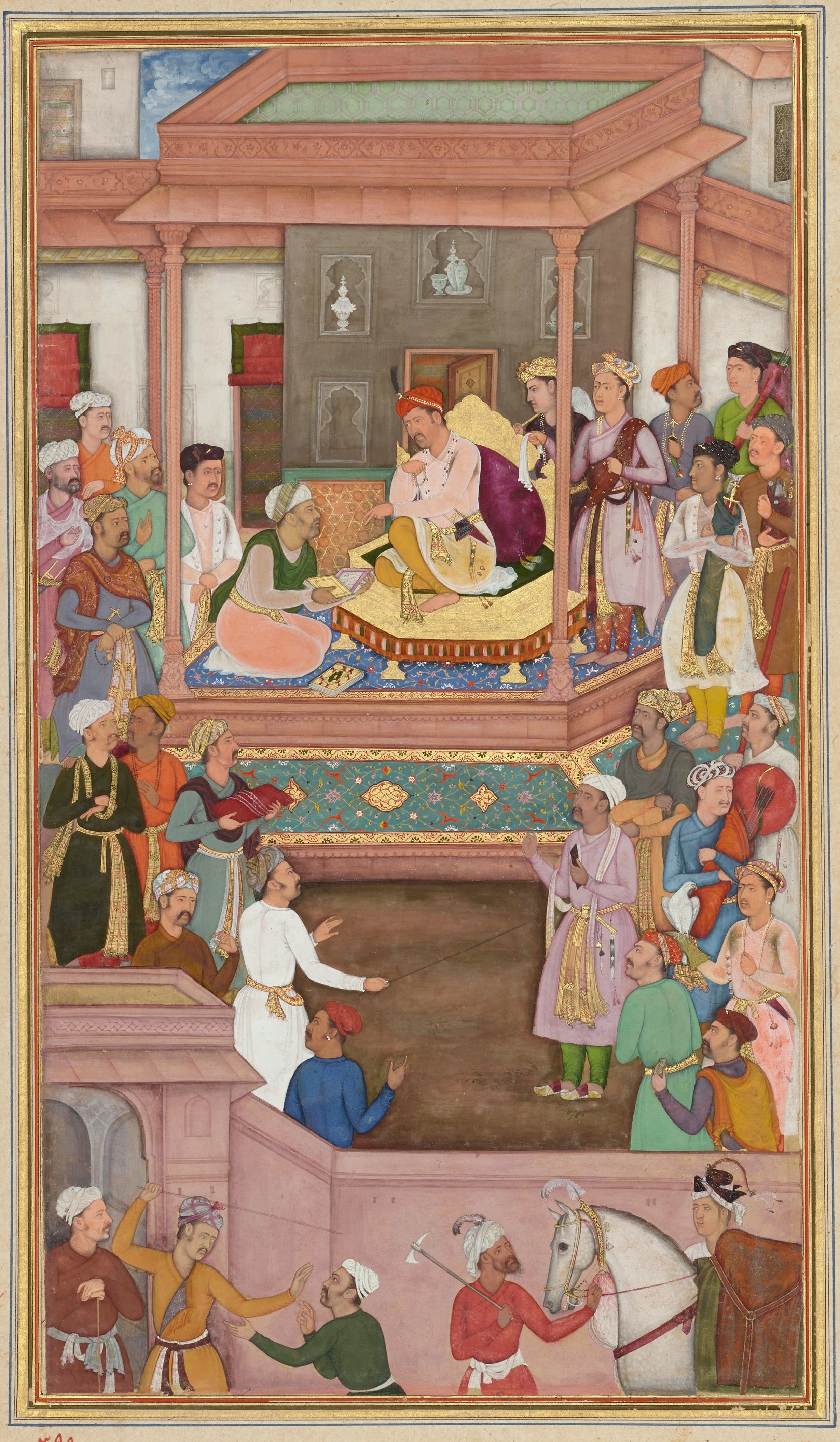About Akbar. Ain-i-Akbari by Abul Fazl. quoted from Lal, K. S. (1999). Theory and practice of Muslim state in India. New Delhi: Aditya Prakashan. Chapter 2
Abu'l-Fazl ibn Mubarak: Frases em inglês
Ain-i-Akbari by Abul Fazl. quoted from Lal, K. S. (1992). The legacy of Muslim rule in India. New Delhi: Aditya Prakashan. Chapter 7
Ain-i-Akbari by Abul Fazl. trans. by H. Blochmann, quoted from Lal, K. S. (1992). The legacy of Muslim rule in India. New Delhi: Aditya Prakashan.
Ain-i-Akbari by Abul Fazl. quoted from Lal, K. S. (1999). Theory and practice of Muslim state in India. New Delhi: Aditya Prakashan. Chapter 2
Ain-i-Akbari by Abul Fazl. trans. by H. Blochmann, quoted from Lal, K. S. (1992). The legacy of Muslim rule in India. New Delhi: Aditya Prakashan.
“The king, in his wisdom, understood the spirit of the age, and shaped his plans accordingly.”
About Akbar. Ain-i-Akbari by Abul Fazl. quoted from Lal, K. S. (1992). The legacy of Muslim rule in India. New Delhi: Aditya Prakashan. Chapter 3
Abu Fazl quoted by Lal, K. S. (2012). Indian muslims: Who are they.
“For a long time past scarce any trace of them (Buddhists) has existed in Hindustan.”
Abul Fazl's Ain-i-Akbari https://archive.org/stream/in.ernet.dli.2015.46757/2015.46757.Ain-I-Akbari--Vol-3#page/n225/mode/1up, Vol. III, translated by H.S. Jarett, p. 212
Also in [The First Spring: The Golden Age of India] by Abraham Eraly, p. 787 https://books.google.com/books?id=te1sqTzTxD8C&pg=PA787; Guru Nanak, his life, time, and teachings: Guru Nanak Foundation quincentenary volume by Gurmukh Nihal Singh, p. 126; The History and Culture of the Indian People: The struggle for empire by R. C. Majumdar, p. 426
Ain - I - Akbari Of Abul Fazl -i-allami Vol.ii. (ca. 1590) https://archive.org/stream/in.ernet.dli.2015.276273/2015.276273.Ain--_djvu.txt Quoted from Narain, Harsh (1993). The Ayodhya temple-mosque dispute: Focus on Muslim sources. Delhi: Penman Publishers. https://archive.org/details/TheAyodhyaTempleMosqueDisputeFocusOnMuslimSourcesHarshNarain
Ain-i-Akbari by Abul Fazl, trans. by H. Blochmann. I, 327. Quoted from Lal, K. S. (1994). Muslim slave system in medieval India. New Delhi: Aditya Prakashan. Chapter 7. Also cited in Herklot, Islam in India, 85-86.
Ain-i-Akbari. Quoted in Lal, K. S. (2001). Historical essays. New Delhi: Radha.(II.203)
